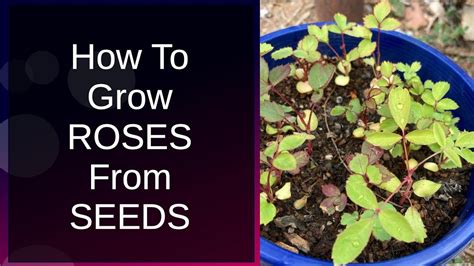The allure of growing perfect roses from seeds is a tantalizing prospect for any gardening enthusiast. While roses are typically propagated through cuttings or grafting, growing from seed can be a rewarding experience, especially for those interested in exploring the genetic diversity of these beautiful flowers. However, it’s crucial to understand that growing roses from seeds doesn’t guarantee that the offspring will retain the exact characteristics of the parent plant, due to the genetic diversity inherent in sexual reproduction. That said, with the right approach and a bit of luck, you can cultivate truly unique and breathtaking roses. Here’s a step-by-step guide to help you get started:
Understanding Rose Seeds
Before diving into the process, it’s essential to comprehend the basics of rose seeds. Rose seeds are the product of sexual reproduction between two rose plants, combining the genetic material of both parents. This means the resulting seedlings can exhibit a wide range of traits, from the color and shape of the blooms to the plant’s growth habit and disease resistance. For this reason, growing roses from seeds is often used in breeding programs to develop new varieties.
Preparing the Seeds
- Acquire High-Quality Seeds: Start by procuring rose seeds from a reputable supplier. Ensure the seeds are fresh and suitable for the climate and region you’re in.
- Cold Stratification: Many rose seeds require a period of cold stratification to break dormancy. This can be achieved by placing the seeds in a moistened medium (like peat moss or a seed starting mix) in a plastic bag and refrigerating them at around 40°F (4°C) for 30 to 90 days.
- Sow Seeds: After cold stratification, sow the seeds about ¼ inch deep in a well-draining seed starting mix. Water gently but thoroughly.
Providing Optimal Conditions
- Light and Temperature: Most rose seeds germinate best in cooler temperatures, around 70°F (21°C) during the day and slightly cooler at night. Provide indirect light; direct sunlight can be too intense for seedlings.
- Watering: Keep the soil consistently moist but not waterlogged, which can lead to root rot and poor germination.
- Fertilization: Once seedlings have two sets of leaves, you can start fertilizing them with a balanced, water-soluble fertilizer at half the recommended strength.
Nurturing the Seedlings
- Transplanting: After about 6 to 8 weeks, when the seedlings have 3 to 4 sets of leaves, they can be transplanted into larger pots or directly into the garden, provided the weather is favorable. Harden off the seedlings before transplanting to prevent shock.
- Ongoing Care: Continue to provide optimal growing conditions, including full sun (at least 6 hours of direct sunlight), well-draining soil, and regular fertilization. Prune the seedlings to encourage bushy growth and more blooms.
Considerations for Growing Perfect Flowers
- Patience: It can take 2 to 5 years for rose seedlings to mature and start blooming, and the flowers may not develop immediately.
- Genetic Variability: Each seedling can produce flowers that are significantly different from the parent plants, which can be both exciting and unpredictable.
- Breeding for Traits: If you’re looking to cultivate specific traits, such as disease resistance, color, or fragrance, you may need to grow multiple generations of seedlings, selecting and breeding those that exhibit the desired characteristics.
Conclusion
Growing perfect roses from seeds is a journey that requires patience, dedication, and a willingness to embrace the unpredictability of nature. While the process can be rewarding, it’s essential to understand that the goal of “perfect” flowers is subjective and can vary greatly from one gardener to another. Whether you’re a seasoned horticulturist or a newcomer to the world of gardening, the quest to cultivate unique and beautiful roses from seeds can be a fulfilling and enriching experience.
How long does it take for rose seeds to germinate?
+Rose seeds can take anywhere from 1 to 3 months to germinate, depending on the variety and conditions provided.
Can I grow roses from seeds indoors?
+Why do rose seeds need cold stratification?
+Cold stratification mimics the natural winter period that rose seeds would experience outdoors, which helps break dormancy and encourages germination. This process can significantly improve the germination rate of rose seeds.



